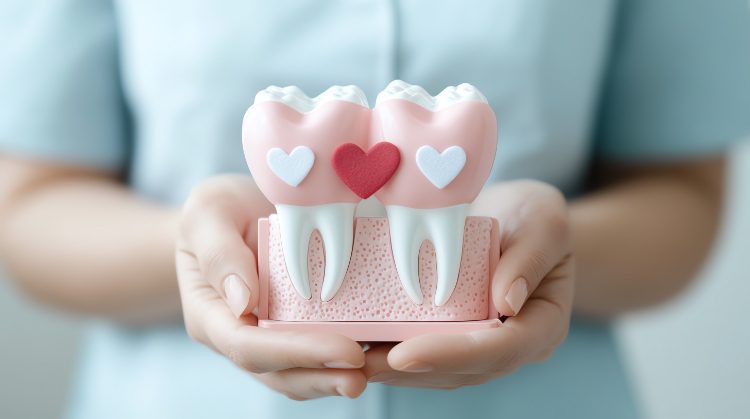
February is here, with all its Valentine’s hearts and candy, but many people aren’t aware that this month is also National Children’s Dental Health Month. The American Academy of Pediatric Dentistry (AAPD) and the American Dental Association (ADA) both support this nationwide initiative that aims to bring attention to the importance and benefits of early, good dental and oral health care.
Proper dental care matters more than just maintaining a sparkling smile, especially in children. Decay in baby teeth can lead to speech problems, oral infections and damaged adult teeth, according to the Centers for Disease Control and Prevention. The CDC also says about 33 percent of young kids (ages 2 to 8) have cavities in their baby teeth, and 20 percent of kids in the same age group have cavities in their adult teeth.
Because a child’s teeth are so important to their self-esteem and overall health, here are some important tips for making sure your child is receiving the best dental care possible.
1. Start your kids with a dental care routine early.
Tooth decay is mostly preventable by following a daily hygiene schedule. Starting your kids early on daily tooth brushing, flossing and rinsing with mouth wash can prevent decay and costly dental bills.
2. Most dental professionals recommend children should have their first dentist visit by age 1.
Scheduling your baby’s first dental visit when their first tooth comes in can start your child off on the right track to having healthy teeth in the long term. The sooner you get your child to the dentist, the sooner you can get any tooth decay or gum issues taken care of before they become part of a larger problem.
3. Never put a baby to bed with a bottle of milk, formula, fruit juice or sweetened liquid.
These liquids can pool in the baby’s mouth, forming a sugary film on the baby’s teeth. This can lead to decay and infections.
4. Start cleaning your baby’s teeth from the moment they are born.
When your baby is a newborn, dentists recommend you clean his or her gums, and the teeth once they come in, with water and a soft cloth or child-sized toothbrush. When the child reaches 2 years old, you can start brushing their teeth with a soft-bristled toothbrush and a smear-sized dab of fluoride toothpaste (no larger than a grain of rice). Make sure to teach your toddler to spit out the rest of the toothpaste.
5. Help your child brush twice a day.
Helping your child brush their teeth can seem unnecessary and can sometimes be too time-consuming, but helping your child with brushing when you do have the time can ensure they are using the right amount of toothpaste and are brushing properly. You should also try to make sure your child does not swallow toothpaste, which can expose them to too much fluoride.
6. Limit sugary snacks and drinks between meals.
Sugar that comes in contact with teeth can lead to decay-causing bacteria that can produce acids that decay your child’s teeth. Try to encourage your children to eat healthy snacks, like fruits and vegetables.
7. Take your child to the dentist regularly.
Most dentists recommend that people visit the dentist at least twice a year, but this is especially important for children. The more your child visits the dentists, the healthier their teeth will stay throughout their life. Regular checkups can prevent cavities and tooth decay that can lead to pain, trouble concentrating and other medical issues.
Taking these steps can start your child on a path to not only a sparkling smile, but also better health in general. National Children’s Dental Health Month aims to help children nationwide get the dental care they need and deserve. Oral health is important all year round, but by bringing attention to this important issue, dental professionals hope that parents and children will get on the right track to achieving their best smiles.
Dr. Norman and the Dream Smile team is here to help make sure your child is getting great dental care. Make an appointment today to find out more!



